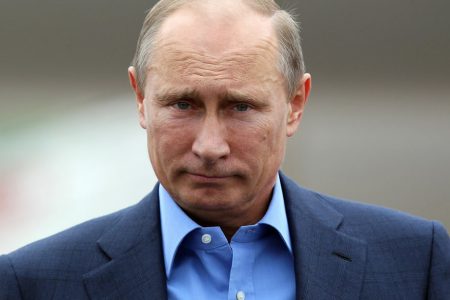Naval War College, Newport, Rhode Island: Last week marked the 75th anniversary of Japan’s surprise attack on Pearl Harbor that destroyed much of the Pacific Fleet’s battleship firepower forcing America into World War II. Pearl Harbor has since become synonymous with attacks launched without warning. Interestingly, Nazi Germany’s unprovoked invasion of Russia on June 22nd, 1941 preceded Japan’s sneak attack by almost six months.
In initiating war, surprise invariably succeeds. But rarely does surprise win as Germany and Japan discovered. The Confederate bombardment of Fort Sumter in April 1861 and the Arab onslaughts against Israel since 1948 onwards exploited surprise but never achieved victory. But in today’s far more complex and interrelated world, surprise extends far beyond military issues. And surprise need not produce only disasters.
The broader question is what surprises or attacks are likely to challenge the incoming administration or provide opportunities beyond actual Pearl Harbors or Operation Barbarossa—Hitler’s invasion of Russia. One can argue that Russia’s more recent intervention in Ukraine and assimilation of Crimea utilized surprise and so far have succeeded. But Crimea already had substantial Russian military presence and in a fair referendum would have overwhelmingly voted to ally with Moscow.
A frequently repeated doomsday prediction is a “cyber Pearl Harbor.” The implication is that an adversary could launch a cyber attack that destroys or disables a substantial part of the American infrastructure whether the electrical grid or the banking system. This is a misnomer. Such an attack is physically improbable if not impossible. And why would a major power attempt such an attack knowing that it would quickly be attributed and retaliation inevitable?
More likely, major powers may make military interventions as Russia has done in Syria. China may continue to militarize tiny islets in the various Chinese seas. North Korea’s Kim Jung Un is unpredictable. And terrorist organizations especially the Islamic State (IS) and al Qaeda will attack where they can such as in Paris, Brussels and Nice.
Where real surprise is more likely to occur, perhaps not to Pearl Harbor standards, is political. Global politics is going through a radical shift perhaps as great as the end of World War II and the Cold War. Consider just a few tectonic changes exemplified by the election of Donald Trump. Brexit, the referendum in Italy that forced the resignation of its Prime Minister Matteo Renzi, populism in Europe with a pronounced rightwards shift and the possible implications of elections in Germany and France are symptomatic of these forces that challenge the future of NATO, the European Union and possibly the system of alliances that has kept the United States secure for seventy years.
Financially and economically, with Dow Jones soaring well over 19,500 also means that what comes up must come down. Some of Trump’s cabinet picks will cause firestorms on Capitol Hill. As his policies become clearer, no doubt opposition will harden. Each or any of these policies can prove to be a “Pearl Harbor.”
As Brexit takes shape and British Prime Minister Theresa May’s announced date of March 31st, 2017 to trigger Article 50 could produce potential Pearl Harbors about what follows. U.S. relations with China, India and Russia likewise are fraught with uncertainty. That President-elect Trump chose to speak with the president of Taiwan and the prime minister of Pakistan, he was purposely using those conversations as potential leverage with China and India. In that regard, blowback is very worrying.
Similarly, the betting is that the Trump administration is contemplating a grand bargain with Russia. Trump is so confident of his negotiating skills, he may believe he can reach an agreement with Vladimir Putin over Ukraine, Crimea, Syria, Russian intimidation of Europe and probably increasing trade after sanctions are lifted. If an agreement can be achieved, that will be a huge surprise and a reverse Pearl Harbor of political proportions. If it fails, that outcome will not be pleasant.
One conclusion is redefining the meaning of Pearl Harbor. Today, that definition should mean a surprise of tectonic proportions that changes the state of global affairs. The Great Depression of 1929 was one such event. We are facing more.
Another conclusion is that the new administration needs better tools for forecasting the future and a broader set of contingencies to consider. For much of the 20th century, Pearl Harbor meant a military sneak attack. For the 21st century, Pearl Harbor should mean tectonic surprise for good or ill.




